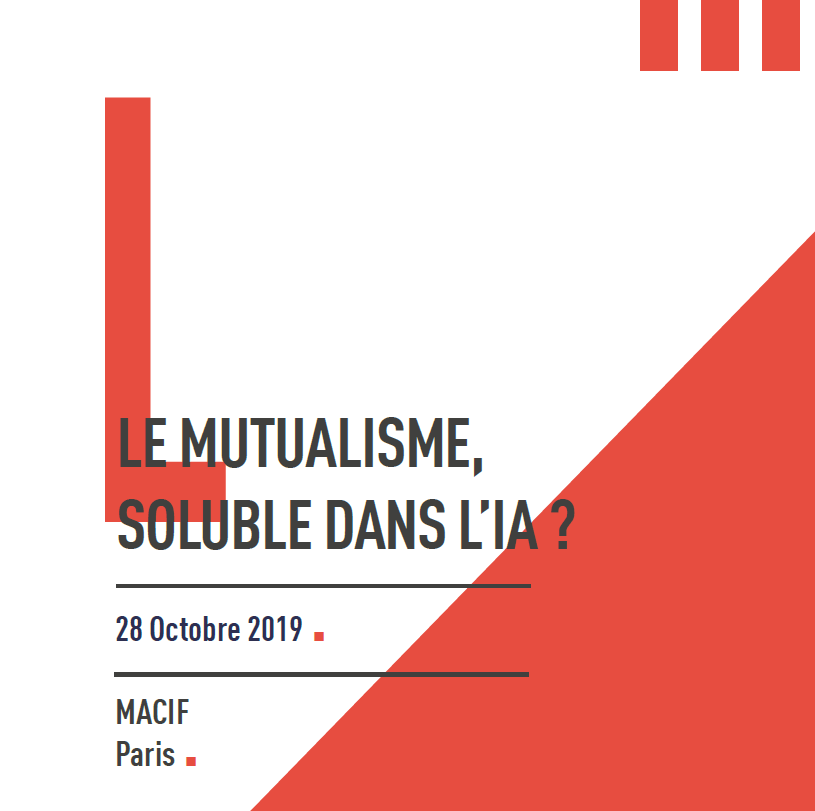Paris, 28 octobre 2019 – Le Mutualisme, soluble dans l’IA ?

Le développement de l’Intelligence artificielle, et l’intégration progressive de ces technologies dans les systèmes économiques, sociaux et politiques, soulèvent, en parallèle, des enjeux éthiques et de gouvernance. En effet, l’IA semble suivre une logique d’individualisation, qui, se basant sur les principes de reconnaissance et de caractérisation d’un individu au sein d’un groupe (de collaborateurs, de consommateurs, de citoyens, etc.), rend la collecte des données personnelles plus importante et plus rapide. Le modèle mutualiste, entendu comme système de solidarité sociale fondé sur l’entraide réciproque des membres qui cotisent, et se caractérisant donc par un phénomène de « masse » et d’anonymisation, irait-il à l’encontre de cette logique d’individualisation ?
Dépendant de l’usage qui en est fait, cette logique d’individualisation comporte des risques. Un algorithme peut être utilisé pour améliorer le bien-être des utilisateurs et des citoyens (ex : meilleure répartition des ressources sociales) ou en faciliter la surveillance, au risque de réduire l’espace de liberté (ex : système de « crédit social » en Chine). Prévenir les risques éthiques d’un usage plus important de l’IA dans nos organisations et nos sociétés, nécessite de se questionner sur le modèle de gouvernance à développer : quoi protéger ? Qui protéger ? Comment protéger ?
18:30 – Mot de bienvenue par Philippe Perrault, vice-président, groupe MACIF
18:35 – L’ambition numérique de la nouvelle Commission
Introduction par Sébastien Maillard, directeur de l’Institut Jacques Delors
18:45 – Table-ronde : « le mutualisme, soluble dans l’IA ? »
Bruno Mettling, directeur général, cabinet Topics, ancien Directeur des Ressources Humaines d’Orange
Guillaume Buffet, vice-Président Renaissance Numérique, président, U Change
20:15 – Conclusion et mise en perspective
Sylvie Delacroix, professeur en droit et éthique, Université de Birmingham, membre du Alan Turing Institute
Séminaire uniquement sur invitation

